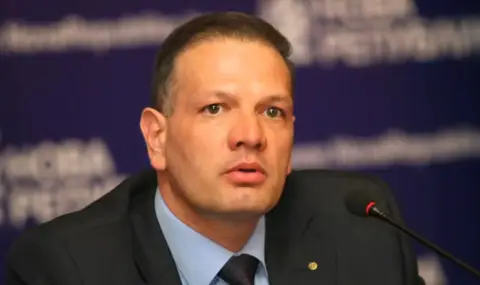I have given my proposals for issuing a decree. Now President Radev is on the move. I call on him to fulfill his obligations under the Constitution. This was stated by acting Prime Minister Dimitar Glavchev and added that the proposals were entirely his. At the same time, the opposition in the parliament talked about a vote of no confidence in the "Glavchev" cabinet. What to expect… Attorney Petar Slavov spoke to FAKTI.
- Mr. Slavov, how we thought it was, and how we ended up with the changes in the Constitution. Who's who in today's political game…
- In fact, many legal practitioners warned the current MPs about how far the changes in the Constitution, which they voted in haste and without adequate public and expert discussion at the end of last year, will lead us to.
Not only were the warnings not heeded, but I feel like some changes were made in spite of the obvious problems they posed
- including the change in the procedure for the constitution of an interim government by the president, in which he (because of his enmity with the same people who called us three years ago to vote for Radev's second term) was limited to choose the future prime minister from a list of which some people had an initial incompatibility. Thus, it was necessary to urgently change the law so that the chairman of the Audit Chamber could still be elected acting prime minister. Probably, the problems came to a large extent from the fact that for many deputies the changes in the basic law were part of some kind of political game of theirs, which is not just a pity - it is also constitutionally inadmissible!
- Official cabinet, but under party dictation. That's what we see. This is news, isn't it?
- And for this, a number of warnings were issued during the changes to the Constitution - namely, that most of the positions from which the president must choose the future acting prime minister are either in conditions of incompatibility, or with a strong political affiliation in the past… But who will listen?!
It is now obvious that such "novelty" is frankly dangerous for the conduct of fair and free elections and undermines trust in statehood and democracy.
The worst thing is that with each passing day the problems are not only not solved, but new and new ones are piling up.
- Vote of no confidence in a caretaker government. This is also something new. Can it happen at all after the “Glavchev“ is appointed, not elected…
- Even when taking the oath before the outgoing National Assembly (and not as it is usually taken by the official government - before the president) it was clear to me that this would have its negative consequences. At the very least, because the responsibility for this cabinet is being blurred and as we can see now, no one wants to bear this responsibility?! Added to this is the already submitted draft decision for a vote of no confidence in the official cabinet - something that contradicts both the idea of the appointment of the official government by the head of state as politically unrelated to the political parties participating in the elections, as well as the practice of the Constitutional Court.
- BSP leader Cornelia Ninova announced that the vote of no confidence will be submitted only if the president does not replace the acting Prime Minister Dimitar Glavchev. We also want a change of the prime minister… Can it happen… Or it's just a political move by the opposition…
- In fact, on April 17, a draft decision for a vote of no confidence in the "Glavchev" cabinet was already submitted. and now the big question is whether the desire for political expression and dividends will lead the parliamentary parties to the voting of a frankly unconstitutional decision, such as we have often seen voted in a pre-election situation..
- If on Friday President Radev signs the changes in the "Glavchev" cabinet, what will happen next, what will happen…
- If the president accepts Dimitar Glavchev's proposals to replace the two (for now) ministers and issues a decree for their release and appointment of their successors, we will also have a personal change in the composition of the official cabinet.
In case of refusal, the current holders of the position will have to continue to perform it.
Of course, in the second option, the acting prime minister can propose other changes if he considers that blocking the changes he requested endangers the work of the government. It is also possible for him to submit his resignation to the president, which would also lead to the resignation of the entire caretaker government.
- According to decision No. 20 of 1992 of the Constitutional Court, it is stated that an official cabinet is not subject to parliamentary control, which aims to realize political responsibility. Is it at all clear who is currently responsible for the work of the office?
- That's right - this SC decision analyzes in detail the powers and responsibilities of an interim government. This includes the inadmissibility of a vote of no confidence in him by the parliament, and it is good for the deputies to read it carefully before voting on the submitted draft decision for a vote of no confidence in the caretaker government. From now on, however, it is clear that no one wants and will not take responsibility for the actions of the caretaker cabinet, and the responsibility will be transferred between the president, the caretaker prime minister and the parliamentary parties to which the cabinet was sworn. However, one thing is certain - the victims will be the Bulgarian citizens, who are very likely to cast their punitive vote on June 9 against the politicians responsible for the inconsistencies in the constitutional changes!
